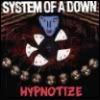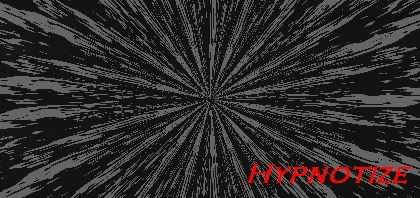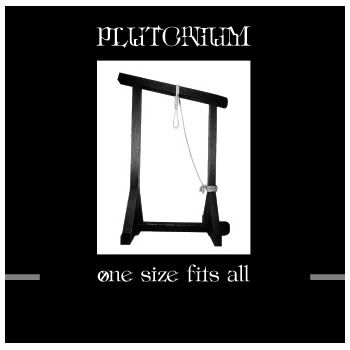Post by Chemical Obsession on Jun 5, 2007 10:04:47 GMT
I don't happen to know enough vegetairans for the amout I have to interveiw, so I'm posting it here in hope ^^ 'Tis Coursework ¬_¬. Information on the different kinds of vegetarian is just below the actual questionaire. Even if you're not a vegetarian, please pretend to be one ^^ A lacto-ovo-vegetarian if possible, they're the easiest.
I am doing a questionnaire to find out the likes and dislikes of a spread of vegetarians so that I can cater for the majority. I will give the questionnaire to 20 vegetarians to find out the main type of vegetarian and their general likes and dislikes.
1. What kind of vegetarian are you?
Lacto-ovo- vegetarian
Lacto vegetarian
Vegan
Raw vegan
Fruitarian
Pescatarian
Semi-vegetarian/ Flexitarian
Macrobiotic
Other (Please state):
2.
a) Do you often buy ready meals?
Yes- often
Yes- sometimes
No – never
b) Why do you buy ready meals sometimes or never?
Too expensive
Unhealthy
Fattening
Not enough choice
Doesn’t taste nice
Other (Please state):
3. What do you like to be the general bulk of the meal?
Pasta
Rice
Dough (E.g. Pizza)
Noodles
None
Other (Please state):
4. Do you like meat alternatives?
No
Yes (Please state):
5. What sort of price would you pay for your readymeal?
Less than and including £1
Less than and including £2
Less than and including £3
Less than and including £4
Less than and including £5
Any price
1) Pescatarian
The word “pescatarian” is occasionally used to describe those who abstain from eating all meat and animal flesh with the exception of fish. Although the word is not commonly used, more and more people are adopting this kind of diet, usually for health reasons or as a stepping stone to a fully vegetarian diet.
2) Flexitarian/Semi-vegetarian
You don’t have to be vegetarian to love vegetarian food! “Flexitarian” is a term recently coined to describe those who eat a mostly vegetarian diet, but occasionally eat meat.
3) Vegetarian (Lacto-ovo- vegetarian)
When most people think of vegetarians, they think of lacto-ovo-vegetarians. People who do not eat beef, pork, poultry, fish, shellfish or animal flesh of any kind, but do eat eggs and dairy products are lacto-ovo vegetarians (“lacto” comes from the Latin for milk, and “ovo” for egg).
Lacto-vegetarian is used to describe a vegetarian who does not eat eggs, but does eat dairy products.
Ovo-vegetarian refers to people who do not eat meat or dairy products but do eat eggs.
4) Vegan
Vegans do not eat meat of any kind and also do not eat eggs, dairy products, or processed foods containing these or other animal-derived ingredients such as gelatin. Many vegans also refrain from eating foods that are made using animal products that may not contain animal products in the finished process, such as sugar and some wines. There is some debate as to whether certain foods, such as honey, fit into a vegan diet.
5) Raw vegan/Raw food diet
A raw vegan diet consists of unprocessed vegan foods that have not been heated above 115 degrees Fahrenheit (46 degrees Celsius). “Raw foodists” believe that foods cooked above this temperature have lost a significant amount of their nutritional value and are harmful to the body.
6) Macrobiotic
The macrobiotic diet, revered by some for its healthy and healing qualities, includes unprocessed vegan foods, such as whole grains, fruits and vegetables, and allows the occasional consumption of fish. Sugar and refined oils are avoided. Perhaps the most unique qualifier of the macrobiotic diet is its emphasis on the consumption of Asian vegetables, such as daikon, and sea vegetables, such as seaweed.
I am doing a questionnaire to find out the likes and dislikes of a spread of vegetarians so that I can cater for the majority. I will give the questionnaire to 20 vegetarians to find out the main type of vegetarian and their general likes and dislikes.
1. What kind of vegetarian are you?
Lacto-ovo- vegetarian
Lacto vegetarian
Vegan
Raw vegan
Fruitarian
Pescatarian
Semi-vegetarian/ Flexitarian
Macrobiotic
Other (Please state):
2.
a) Do you often buy ready meals?
Yes- often
Yes- sometimes
No – never
b) Why do you buy ready meals sometimes or never?
Too expensive
Unhealthy
Fattening
Not enough choice
Doesn’t taste nice
Other (Please state):
3. What do you like to be the general bulk of the meal?
Pasta
Rice
Dough (E.g. Pizza)
Noodles
None
Other (Please state):
4. Do you like meat alternatives?
No
Yes (Please state):
5. What sort of price would you pay for your readymeal?
Less than and including £1
Less than and including £2
Less than and including £3
Less than and including £4
Less than and including £5
Any price
1) Pescatarian
The word “pescatarian” is occasionally used to describe those who abstain from eating all meat and animal flesh with the exception of fish. Although the word is not commonly used, more and more people are adopting this kind of diet, usually for health reasons or as a stepping stone to a fully vegetarian diet.
2) Flexitarian/Semi-vegetarian
You don’t have to be vegetarian to love vegetarian food! “Flexitarian” is a term recently coined to describe those who eat a mostly vegetarian diet, but occasionally eat meat.
3) Vegetarian (Lacto-ovo- vegetarian)
When most people think of vegetarians, they think of lacto-ovo-vegetarians. People who do not eat beef, pork, poultry, fish, shellfish or animal flesh of any kind, but do eat eggs and dairy products are lacto-ovo vegetarians (“lacto” comes from the Latin for milk, and “ovo” for egg).
Lacto-vegetarian is used to describe a vegetarian who does not eat eggs, but does eat dairy products.
Ovo-vegetarian refers to people who do not eat meat or dairy products but do eat eggs.
4) Vegan
Vegans do not eat meat of any kind and also do not eat eggs, dairy products, or processed foods containing these or other animal-derived ingredients such as gelatin. Many vegans also refrain from eating foods that are made using animal products that may not contain animal products in the finished process, such as sugar and some wines. There is some debate as to whether certain foods, such as honey, fit into a vegan diet.
5) Raw vegan/Raw food diet
A raw vegan diet consists of unprocessed vegan foods that have not been heated above 115 degrees Fahrenheit (46 degrees Celsius). “Raw foodists” believe that foods cooked above this temperature have lost a significant amount of their nutritional value and are harmful to the body.
6) Macrobiotic
The macrobiotic diet, revered by some for its healthy and healing qualities, includes unprocessed vegan foods, such as whole grains, fruits and vegetables, and allows the occasional consumption of fish. Sugar and refined oils are avoided. Perhaps the most unique qualifier of the macrobiotic diet is its emphasis on the consumption of Asian vegetables, such as daikon, and sea vegetables, such as seaweed.










